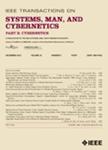版权所有:内蒙古大学图书馆 技术提供:维普资讯• 智图
内蒙古自治区呼和浩特市赛罕区大学西街235号 邮编: 010021

作者机构:Vitria Technol Sunnyvale CA 94086 USA Arizona State Univ Dept Comp Sci & Engn Tempe AZ 85287 USA Cornell Univ Dept Math & Comp Sci Ithaca NY 14850 USA
出 版 物:《IEEE TRANSACTIONS ON SYSTEMS MAN AND CYBERNETICS PART B-CYBERNETICS》 (IEEE Trans Syst Man Cybern Part B Cybern)
年 卷 期:2000年第30卷第1期
页 面:229-239页
核心收录:
基 金:U.S. BMDO, (DAAH04-93-G-0126, DAAH04-95-1-0101, DAAL03-91-G-0158) U.S. National Library of Medicine, NLM, (N01-LM-3-3525)
主 题:asynchronous distributed algorithms decision-making distributed algorithms distributed optimization military command and control optimization perfect global optimization perfect knowledge synthesis of decentralized algorithms
摘 要:For many military and civilian large-scale, real-world systems of interest, data are first acquired asynchronously, i.e., at irregular intervals of time, at geographically-dispersed sites, processed utilizing decision-making algorithms, and the processed data then disseminated to other appropriate sites. The term real-world refers to systems under computer control that relate to everyday life and are beneficial to the society in the large. The traditional approach to such problems consists of designing a central entity which collects all data, executes a decision-making algorithm sequentially to yield the decisions, and propagates the decisions to the respective sites. Centralized derision-making algorithms are slow and highly vulnerable to natural and artificial catastrophes. Recent literature includes successful asynchronous, distributed, decision-making algorithm designs wherein the local decision making at every site replaces the centralized decision making to achieve faster response, higher reliability, and greater accuracy of the decisions. Two key issues include 1) the lack of an approach to synthesize asynchronous, distributed, decision-making algorithms, for any globally optimal. In truth, however, as the frequency of the sensor data given problem, and 2) the absence of a comparative analysis of the quality of their decisions. This paper proposes MFAD, a Mathematical Framework for Asynchronous Distributed Systems, that permits the description of centralized decision-making algorithms and facilities the synthesis of distributed decision-making algorithms. MFAD is based on the Kohn-Nerode distributed hybrid control paradigm. It has been a belief that since the centralized control gathers every necessary data from all entities in the system and utilizes them to compute the decisions, the decisions may be increases and the environment gets larger, dynamic, and more complex, the decisions are called into question. In the distributed decision-making system, the